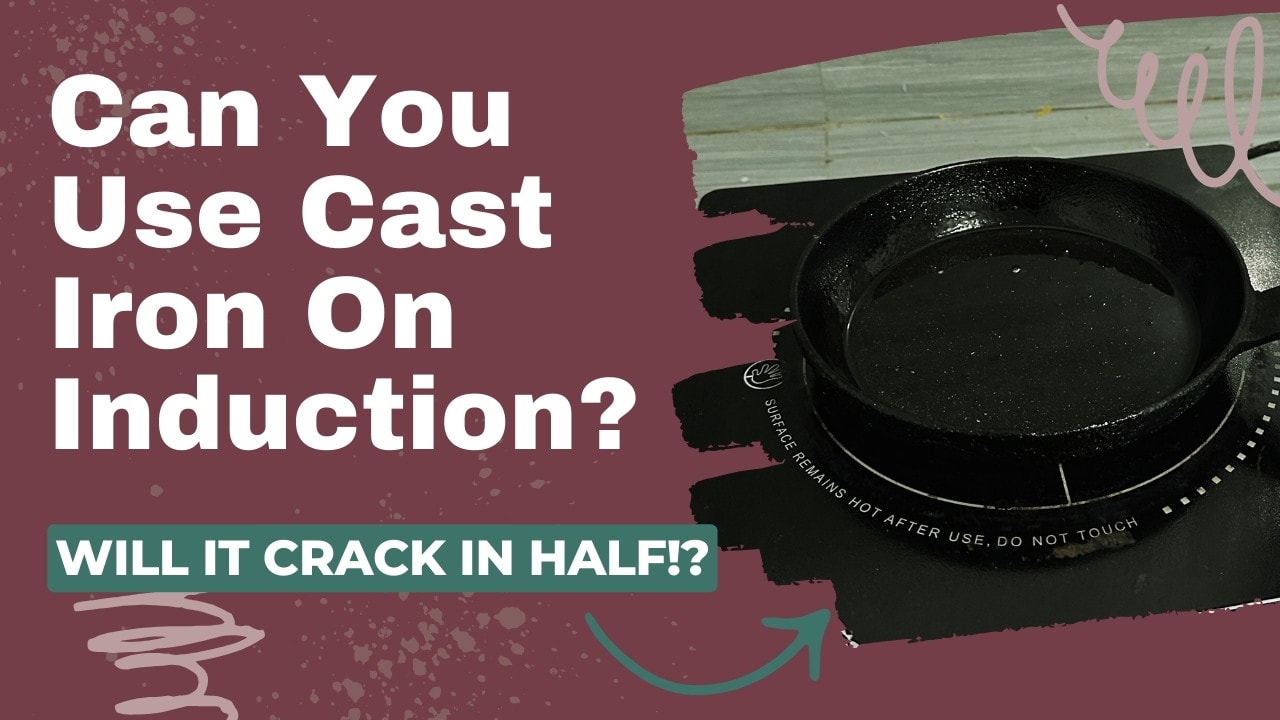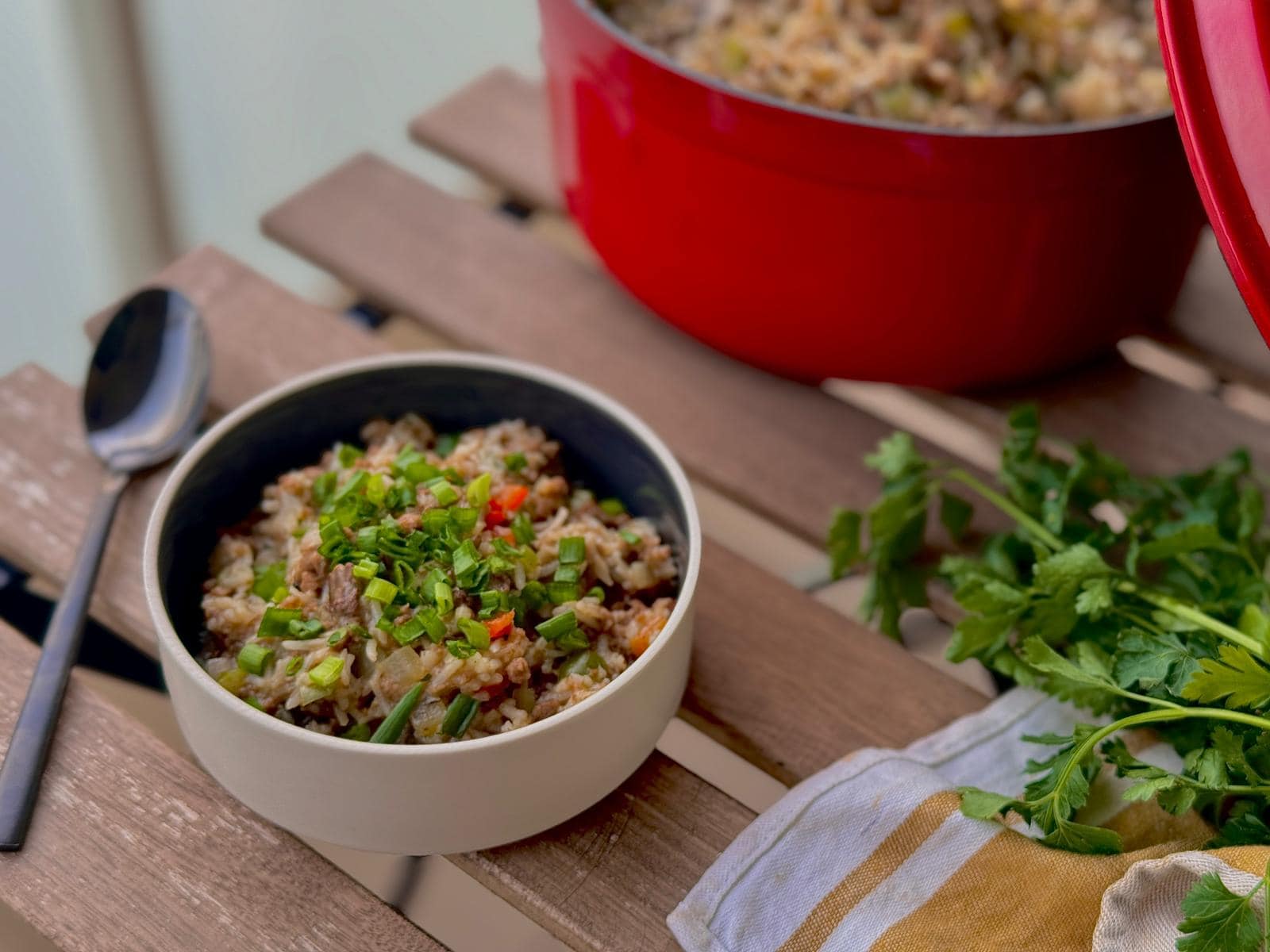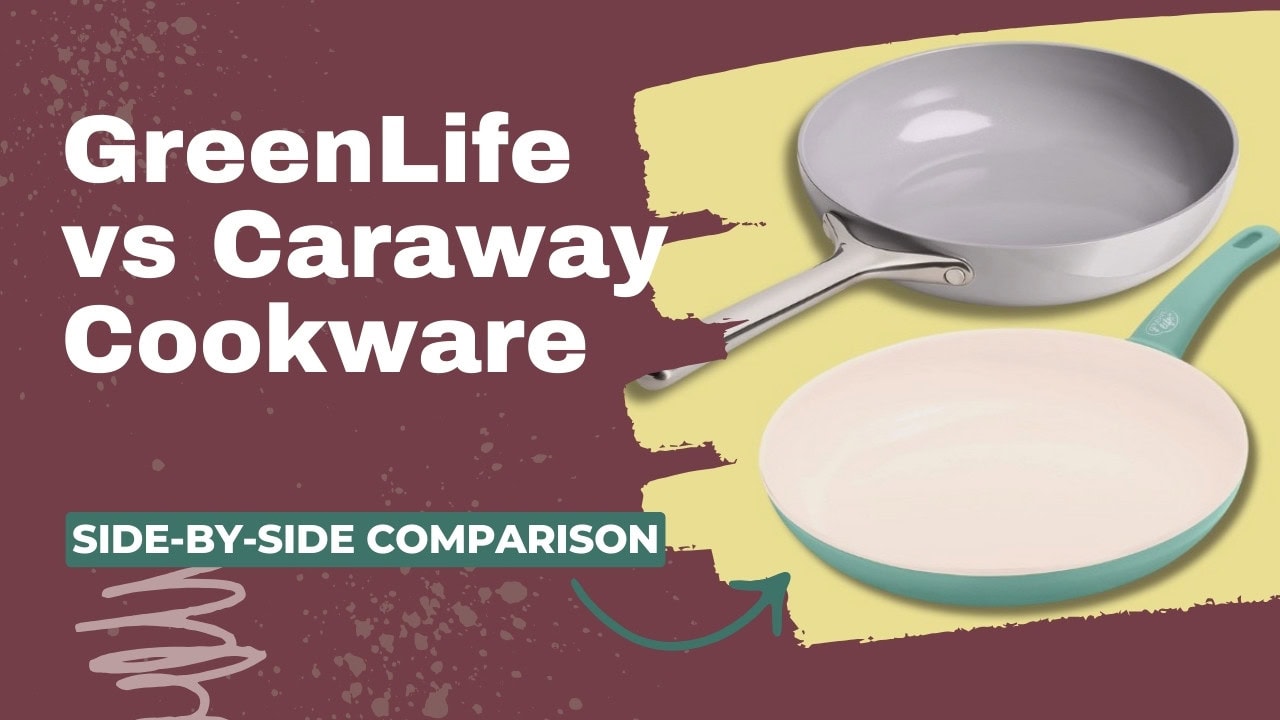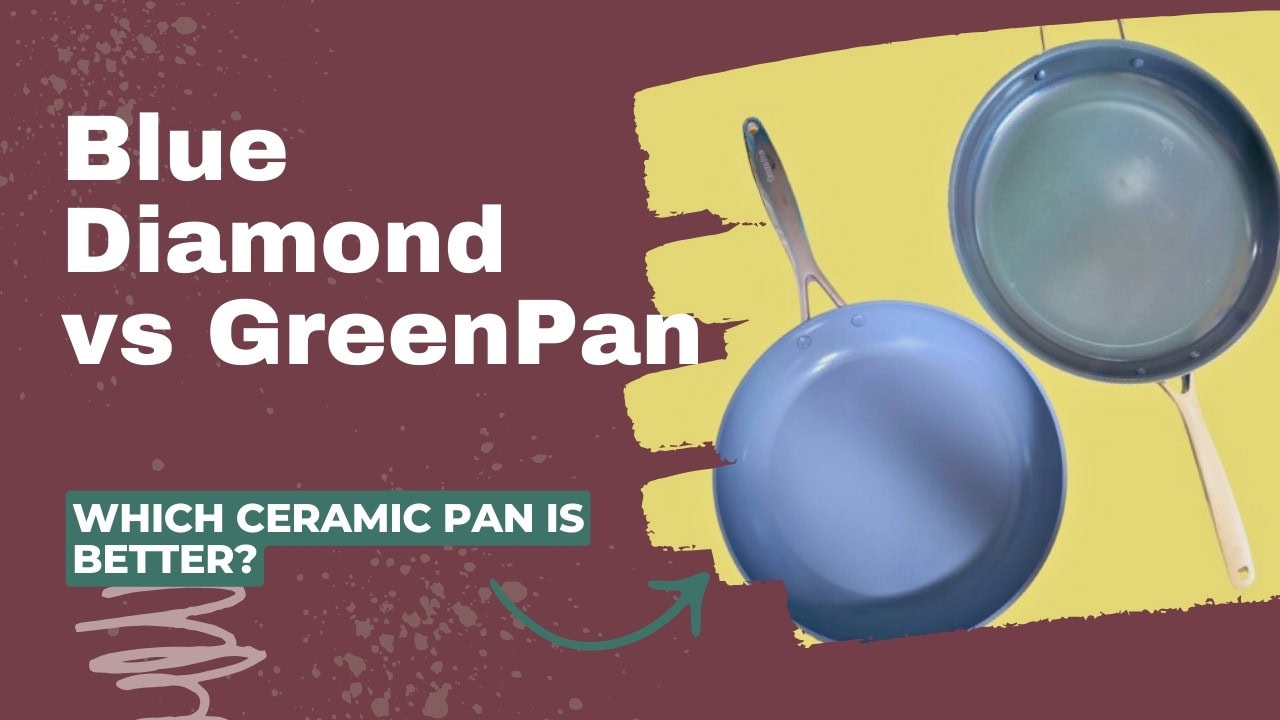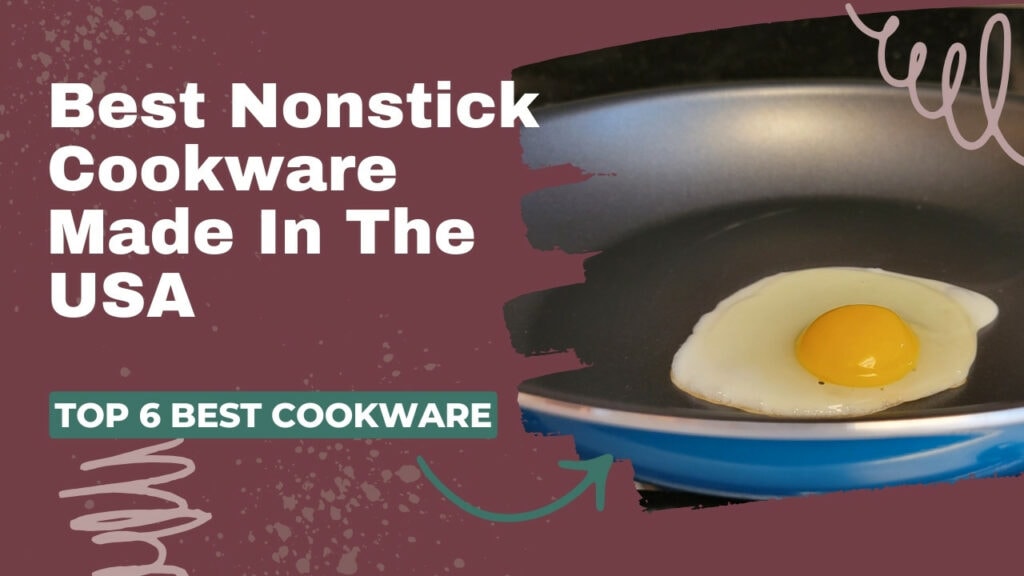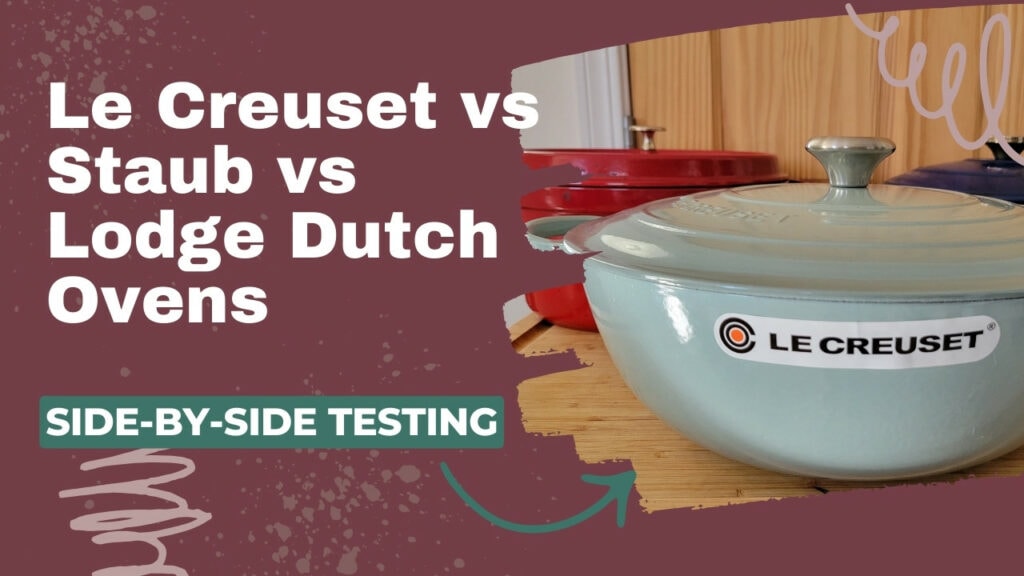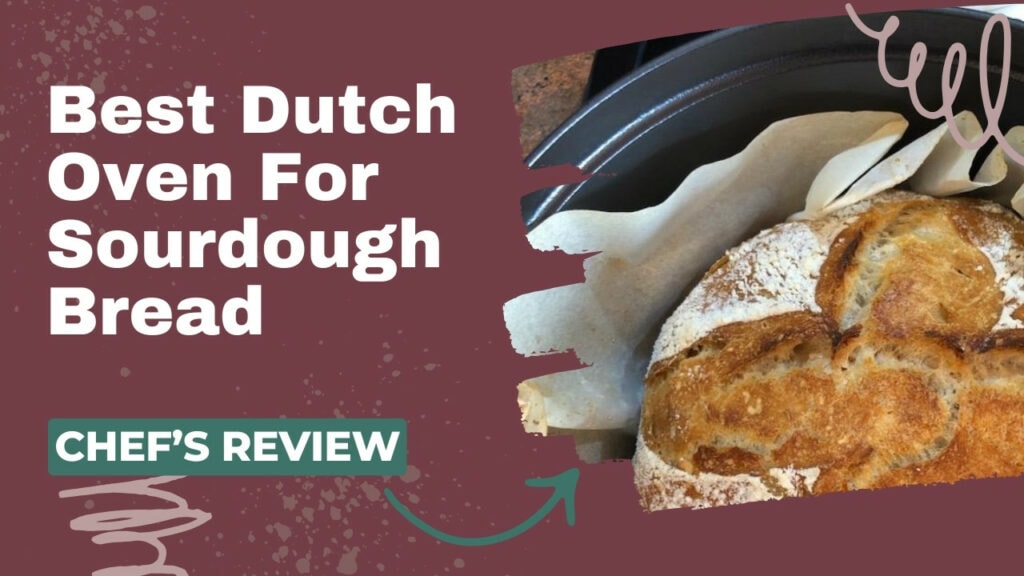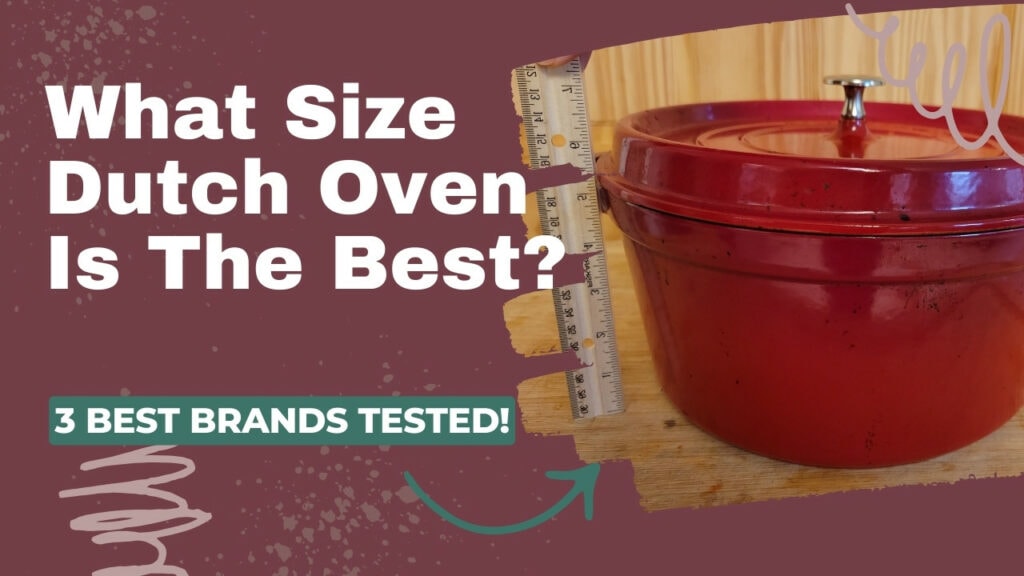When I was working as a chef, my induction cooktop was my best friend! If a pan didn’t work on it, I would rarely reach for that pan. Cast iron is one of my favorite cookware materials, so I obviously had to find out whether or not I could combine it with my favorite cooktop!
In this article, I will explain how induction burners work and whether cast iron can be used on them.
Can You Use Cast Iron Pans on Induction Cooktops?
Yes, cast iron pans can be used on induction cooktops, but there is a catch. You need to use caution, as cast iron can crack if heated too quickly. The pans themselves are very heavy and can damage your burner in various ways if you aren’t careful.
How To Use Cast Iron Pans on Induction Cooktops
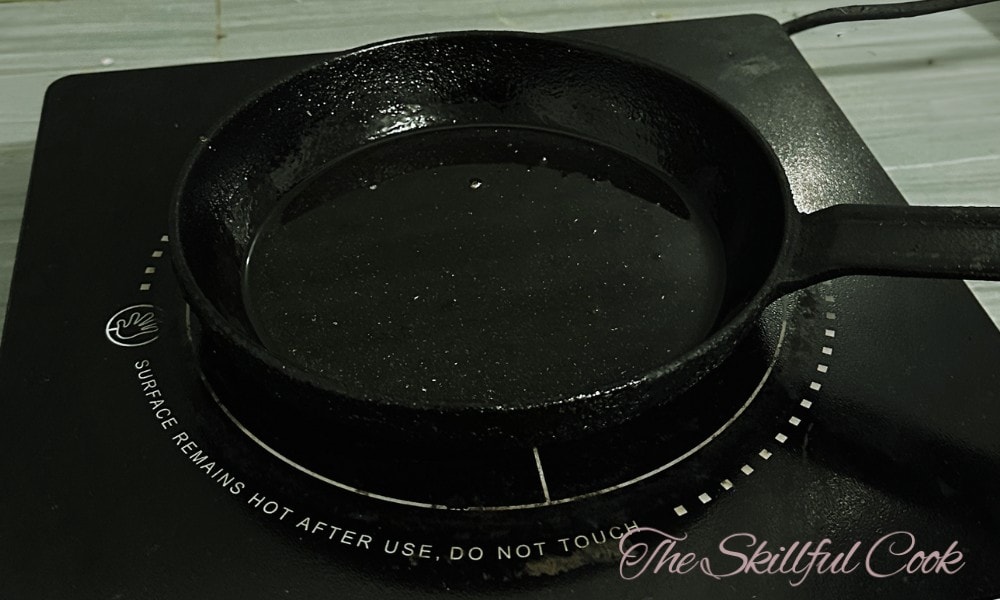
Unfortunately, there are some caveats to using cast iron on induction. There are significant disadvantages, along with the benefits. Good stuff first:
Pros of Using Cast Iron On Induction
Heat Retention
Cast iron is so popular because it retains heat extremely well. You should bring the temperature up gradually, but once you’ve got it right, cast iron maintains its heat very well on an induction plate with no hot spots. Even if you add a lot of ingredients at once, the pan will retain the heat, which speeds up the cooking process.
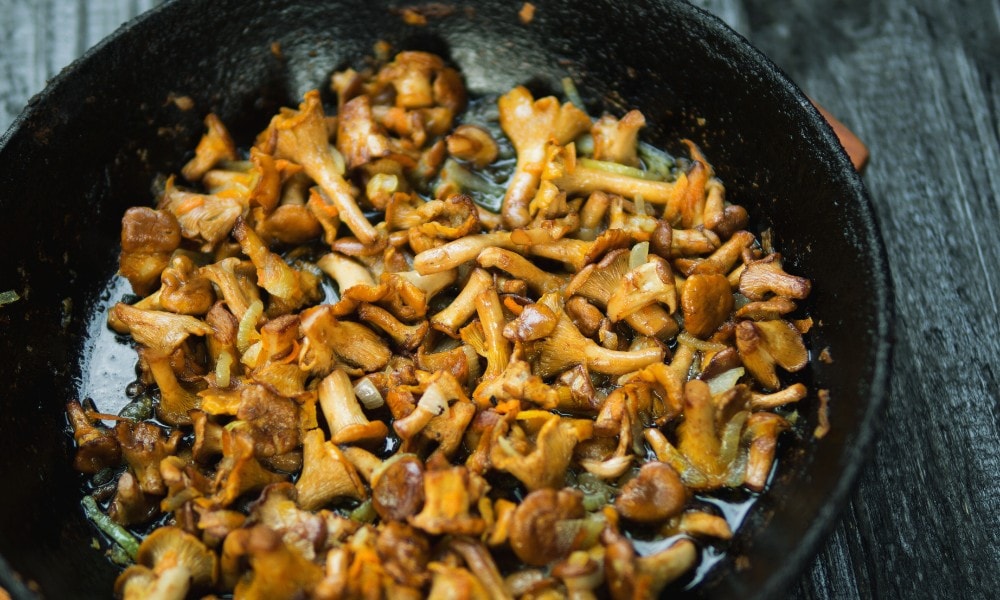
Weight
Personally, I like how the pan’s weight keeps it firmly in contact with the plate. Some lighter pans, especially those with long handles, can easily lift off the burner, breaking the connection and stopping the heat from flowing. I’ve never had this problem with cast iron. If you’re careful, it’s the perfect combination of cooktop and cookware for maximum cooking efficiency.
Cons of Using Cast Iron on Induction
Thermal Shock
As indestructible as it seems, cast iron is brittle and can suffer thermal shock. Other pans warp under thermal shock, but cast iron can actually crack in half! Induction cooktops are notorious for cracking cast iron. Why? Because induction heats so rapidly.
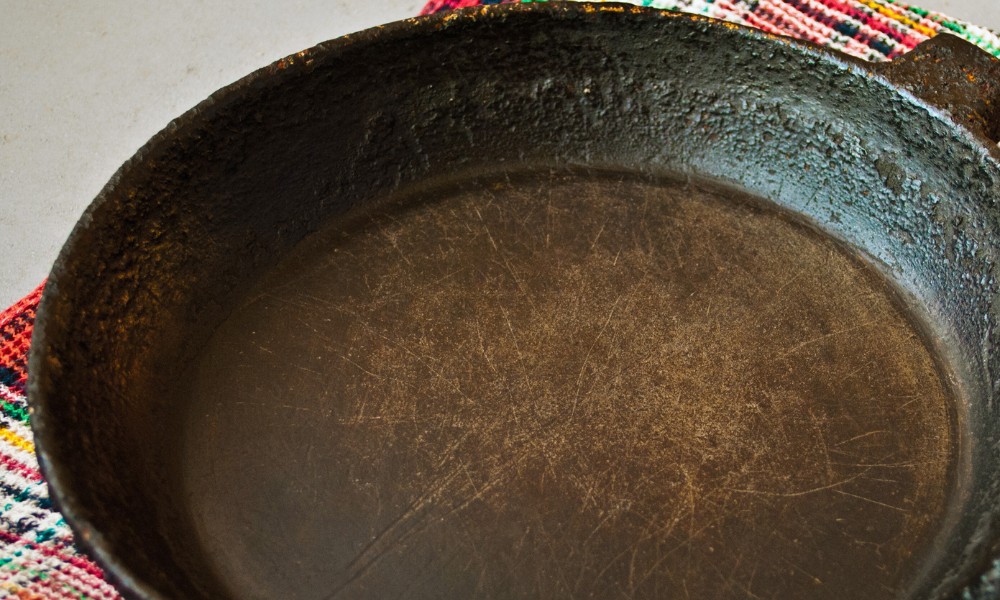
Cast iron usually heats up slowly, and so, with induction, the pan comes to temperature unevenly. To avoid cracking your cast iron skillet on an induction cooktop, bring the heat up gradually, and top out around 350 degrees (175 degrees Celsius).
Cooktop Damage
I love the look of a pristine glass induction top, but it’s at risk when you use cast iron on it. Cast iron pans are heavy, and the bottom is often rough, which can scratch or damage a glass cooking surface. Handle your pan carefully and gently when cooking on induction. When removing the skillet from the burner, don’t drag it. Instead, lift it off the stovetop fully before moving away.
Grease Stains
To maintain its nonstick finish, cast iron needs to be seasoned. This can tend to leave behind a sticky or greasy residue. Cast iron also tends to collect carbonized food on the bottom of the pan that can stain or mark your cooktop. To avoid this, only season the interior of the pan and do so carefully to prevent oil from dripping down the sides. Clean your pan well between uses to get rid of any food remnants that might scratch or stain the cooktop.
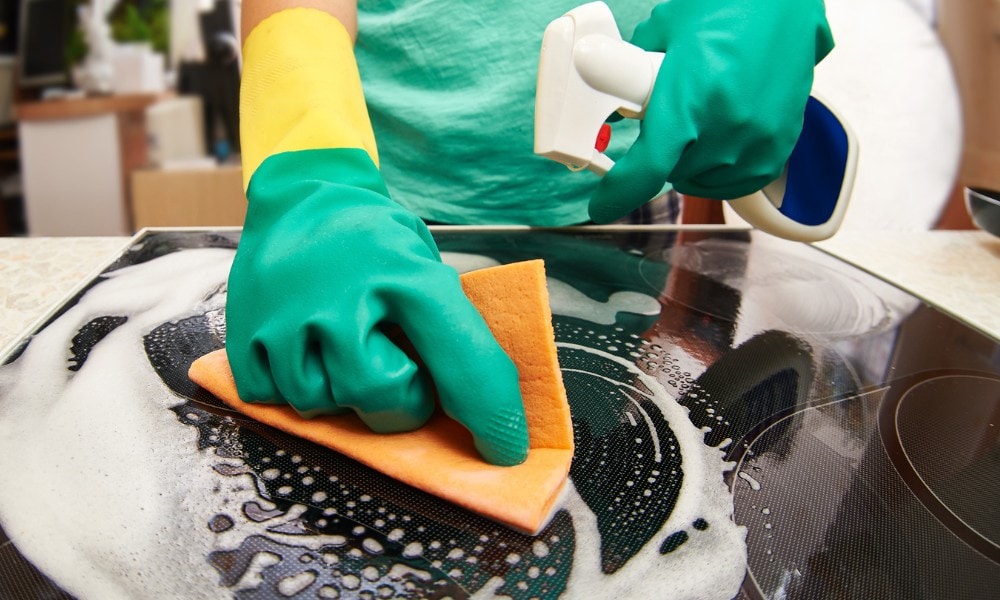
Cooktop Overheating
Lastly, heat doesn’t dissipate quickly from a hot cast iron pan. Instead, some of the heat will transfer back to a glass induction cooktop. This may make the cooktop feel hot to the touch for longer than a more lightweight material might. It could even make your cooktop overheat.
The Best Alternatives to Cast Iron for Induction Cooktops
If you want a material that behaves similarly to cast iron but has fewer drawbacks, I recommend carbon steel. It has less carbon than cast iron, which means it is less brittle and not as susceptible to thermal shock. The malleability of the material means that pans can be made thinner, which makes them lighter and easier to handle.
The lightweight quality and the smoother texture of the metal also mean that carbon steel is less likely to scratch or damage your cooktop. The only downside is you have to heat these pans carefully to prevent warping on induction.
This Matfer Bourgeat Carbon Steel Frying Pan is an excellent example of a cast iron alternative. It has been recommended by America’s Test Kitchen for having superior heat retention and precise temperature control. This is the ideal pan for searing the perfect steak. It does, however, cost more than a cast iron skillet.
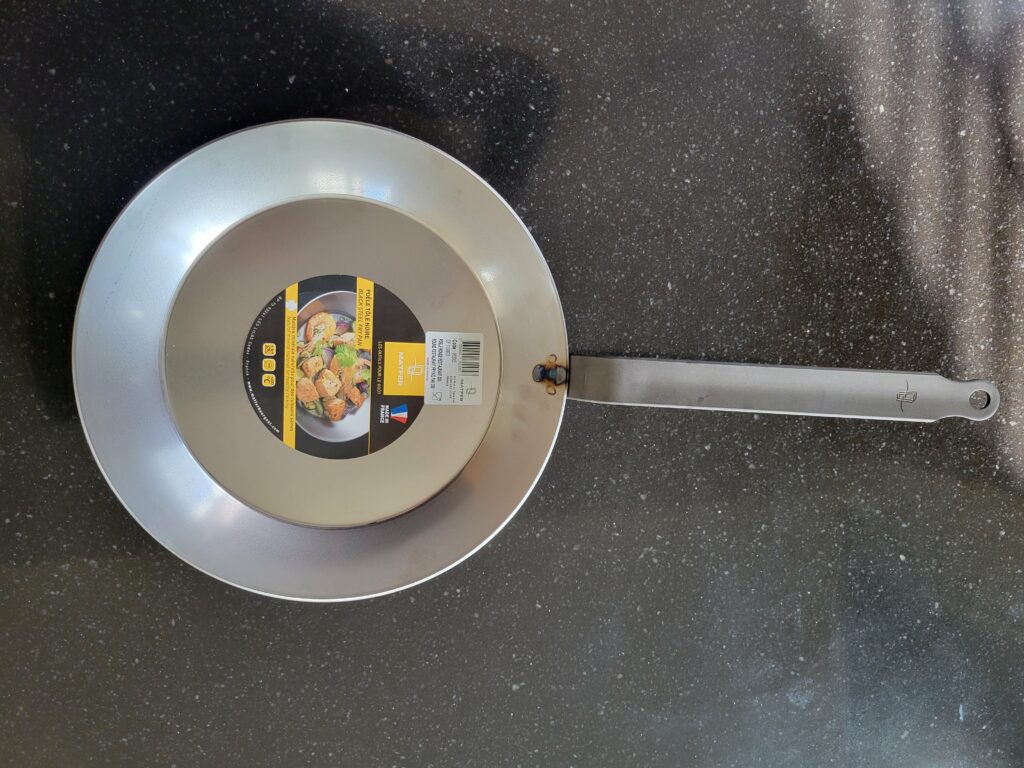
Apart from carbon steel, stainless steel is also a good option that is induction-friendly. Not every stainless steel pan can be used with induction, but most of them can.
You can also get ceramic or nonstick coated aluminum pans with stainless steel set into the base that makes them induction-compatible.
If you want some more induction-friendly pot and pan recommendations, check out my product round-up for all my favorite induction cookware.
Frequently Asked Questions
Will cast iron scratch an induction cooktop?
Cast iron can scratch or damage the glass surface of an induction cooktop due to its heavy weight and often rough bottom. Take care not to drop your cast iron cookware and don’t drag it over the surface of your induction cooktop.
How to protect induction cooktop from cast iron?
To protect your induction cooktop from cast iron, handle your cookware carefully. Lift your cast iron cookware instead of sliding it over the cooktop. Do not drop cast iron as it can shatter the glass surface of the cooktop.
Can you use enameled cast iron on induction?
Yes, you can use enameled cast iron on induction cooktops. Enameled cast iron has a smooth bottom that is less likely to scratch the cooktop and is magnetic, making it compatible with induction cooking. It combines the benefits of cast iron cooking with a more induction-friendly design.
Conclusion
So yes, cast iron can be used on induction cooktops because it’s a ferritic metal. But I urge you to use it with caution. Follow the recommendations in this article so you can avoid damaging your pan or cooktop.
If you have any questions about cast iron or induction cooktops, drop them below.

